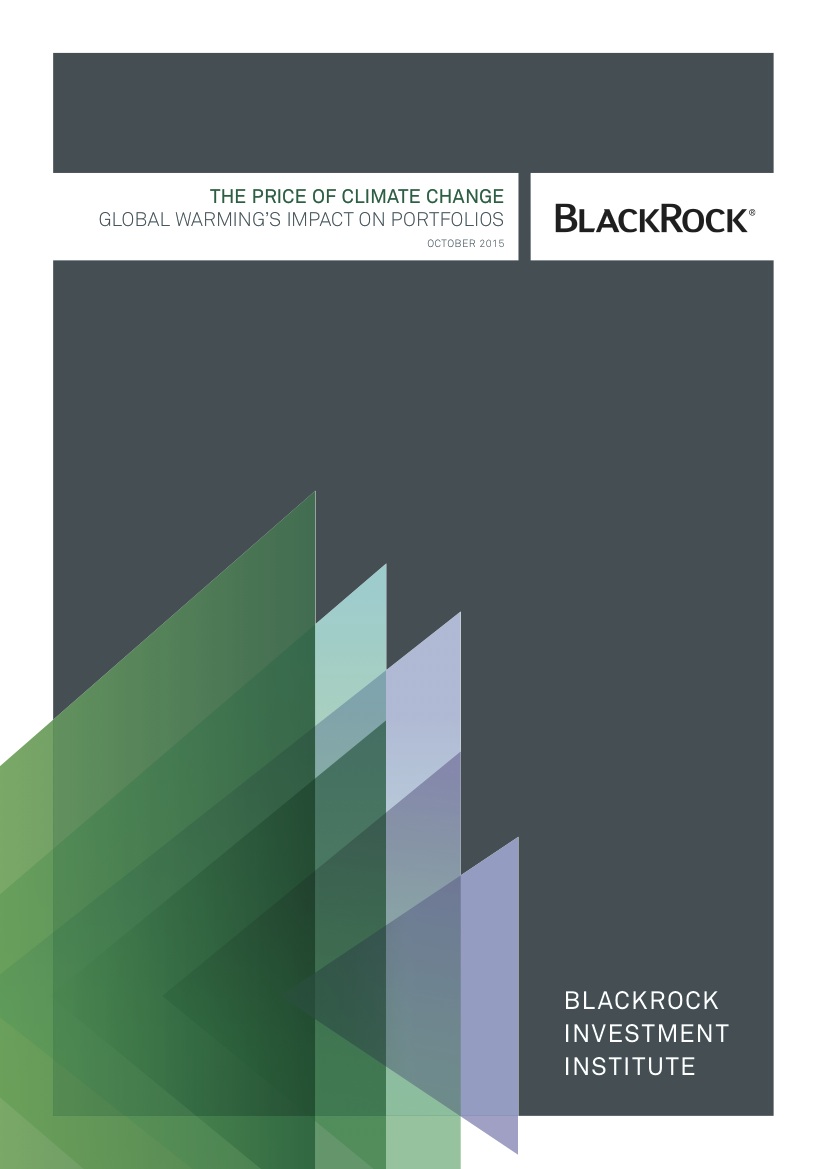 There are lots of good reasons to teach about climate change, amply covered elsewhere on our blog and website. But in a new report from (of all places) the BlackRock Investment Institute—“The Price of Climate Change: Global Warming’s Impact on Portfolios”—we find perhaps the simplest reason, and the hardest to dismiss. Vox’s Dave Roberts highlighted the pertinent paragraph:
There are lots of good reasons to teach about climate change, amply covered elsewhere on our blog and website. But in a new report from (of all places) the BlackRock Investment Institute—“The Price of Climate Change: Global Warming’s Impact on Portfolios”—we find perhaps the simplest reason, and the hardest to dismiss. Vox’s Dave Roberts highlighted the pertinent paragraph:
You may or may not believe man-made climate change is real or dismiss the science behind it. No matter. Climate change risk has arrived as an investment issue. Governments are setting targets to curb greenhouse gas emissions. This may pave the way for policy shifts that we could see ripple across industries. The resulting regulatory risks are becoming key drivers of investment returns.
In other words, even if you personally reject climate change, you live in a nation and a world where climate change is part of every consequential conversation, and part of how consequential decisions get made. If you want to be an informed participant in those conversations, and ensure that the best decisions are made, you need to understand climate change. That includes investment decisions, but also decisions about cars, careers, family life, and even politics. No one can stop you from believing what you want, but if you want to be part of the discussions and decisions that matter, you need to know the science.
There's an even stronger case to be made for education. If we shut off every coal plant and with a snap transformed every car into an electric vehicle charged by clean electricity, children in school today would still see significant climate change for the rest of their lives. An investor might ignore these long-term trends and still get lucky on the market, but that’s not an option for today’s students. They have a lifetime of decisions to make, and a lot of new information to incorporate as the world changes. If our schools don’t prepare those children for the world they’ll live in, and give them the tools to assess how new discoveries and technologies relate to what we already know about climate change, we’re sending them into an unknown world without a map.

